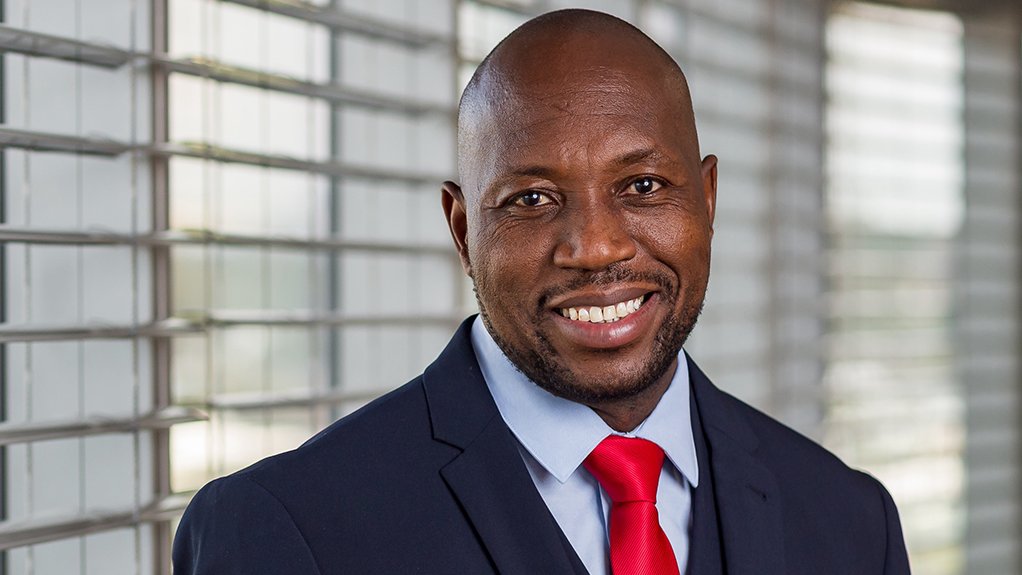Sasol not in ‘sunset’ phase but transition plans cannot outpace market demand – Baloyi
Sasol CEO Simon Baloyi has acknowledged that the group stands at the “threshold” of a potentially difficult energy transition but he has also disputed assertions that the carbon-heavy chemicals and fuel producer has now entered an inevitable “sunset” phase.
Speaking at an environmental, social and governance roundtable, Baloyi reported that work was under way on various renewal strategies and projects. However, he also argued that Sasol’s decarbonisation initiatives could not move ahead of market demand as had been the case with green-hydrogen production in Sasolburg and, thus, needed to be optimised.
“We're not going to be rushed,” he said referring to the group’s repurposing of an electrolyser to produce 6.5 t/d of green hydrogen for which there was currently no domestic demand.
“We have also learnt that you need to transition at the pace at which your customers want to transition.”
Nevertheless, he did not agree with a recent report arguing that the future of its operations in Secunda hinged largely on whether government continued to grant it environmental leniency.
Without referencing the Trade and Industrial Policy Strategies (TIPS) report directly, Baloyi nevertheless indirectly disputed the report’s conclusion that Secunda was a sunset operation with few options to transition.
The TIPS study says that, in the light of Sasol’s current financial position and other capabilities, it will be extremely difficult for Secunda to surmount the hurdles confronting it.
“All things being equal, the duration of Secunda’s sunset phase appears to lie partly in the government’s hands with its remaining life being shortened or lengthened according to the degree of environmental pressure on it.
“The duration also lies partly in Sasol’s own hands and how it meets the challenges confronting it,” the report states.
Questioned about the likely production impact on Secunda given Sasol’s commitment to reduce its greenhouse-gas emissions by 30% by 2030, business building, strategy, and technology executive VP Dr Sarushen Pillay said work was ongoing and an update would be provided before the group’s capital markets day in May.
“The turndown of Secunda operations is the last thing we want to do.
“So, we will first maximise energy efficiency, maximise renewable energy, look for alternate feedstocks that we can bring into the plant before we get to any turn-down decision,” Pillay said.
The group had signed power purchase agreements for 750 MW of renewable energy, was on track to contract for 1 200 MW by 2030 and was considering yet more renewable energy beyond that stated target.
It still had no intention of substituting declining natural gas imports from Mozambique – which is used as a feedstock alongside coal to produce fuels and chemicals – with liquefied natural gas (LNG), owing to unfavourable economics.
However, it would continue to monitor LNG price and demand trends and would persist with plans to play an aggregation role to improve the prospects for LNG imports into South Africa.
Reflecting on Sasol’s future in light of the group’s seventy-fifth anniversary in 2025, Baloyi described the decision to found a company in 1950 to produce fuels from coal as “almost an impossible dream”.
“To transition that energy today from coal into a sustainable energy is not an easy task.
“We stand at that threshold, but we don't see this as a sunset.
“We see this as a renewal phase.”
Article Enquiry
Email Article
Save Article
Feedback
To advertise email advertising@creamermedia.co.za or click here
Press Office
Announcements
What's On
Subscribe to improve your user experience...
Option 1 (equivalent of R125 a month):
Receive a weekly copy of Creamer Media's Engineering News & Mining Weekly magazine
(print copy for those in South Africa and e-magazine for those outside of South Africa)
Receive daily email newsletters
Access to full search results
Access archive of magazine back copies
Access to Projects in Progress
Access to ONE Research Report of your choice in PDF format
Option 2 (equivalent of R375 a month):
All benefits from Option 1
PLUS
Access to Creamer Media's Research Channel Africa for ALL Research Reports, in PDF format, on various industrial and mining sectors
including Electricity; Water; Energy Transition; Hydrogen; Roads, Rail and Ports; Coal; Gold; Platinum; Battery Metals; etc.
Already a subscriber?
Forgotten your password?
Receive weekly copy of Creamer Media's Engineering News & Mining Weekly magazine (print copy for those in South Africa and e-magazine for those outside of South Africa)
➕
Recieve daily email newsletters
➕
Access to full search results
➕
Access archive of magazine back copies
➕
Access to Projects in Progress
➕
Access to ONE Research Report of your choice in PDF format
RESEARCH CHANNEL AFRICA
R4500 (equivalent of R375 a month)
SUBSCRIBEAll benefits from Option 1
➕
Access to Creamer Media's Research Channel Africa for ALL Research Reports on various industrial and mining sectors, in PDF format, including on:
Electricity
➕
Water
➕
Energy Transition
➕
Hydrogen
➕
Roads, Rail and Ports
➕
Coal
➕
Gold
➕
Platinum
➕
Battery Metals
➕
etc.
Receive all benefits from Option 1 or Option 2 delivered to numerous people at your company
➕
Multiple User names and Passwords for simultaneous log-ins
➕
Intranet integration access to all in your organisation



















